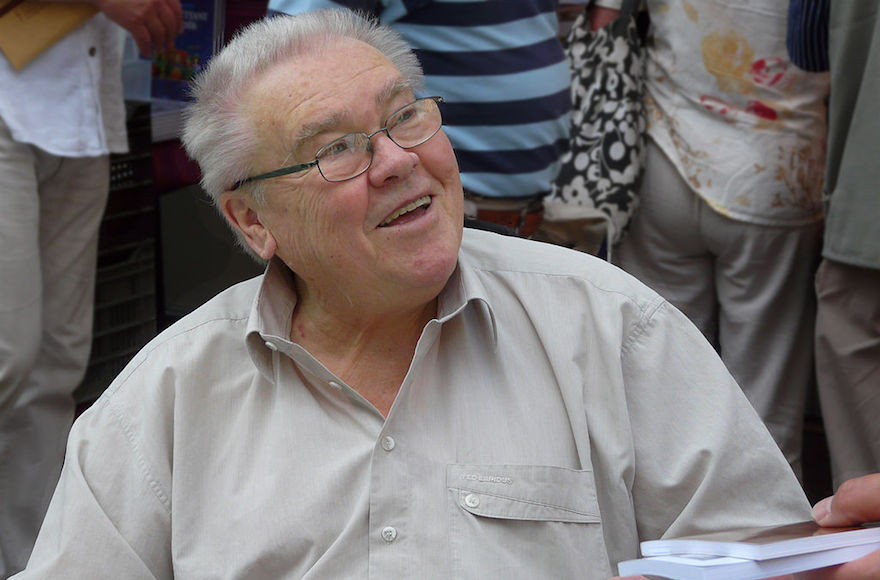A leading Hungarian politician known for his anti-Semitic diatribes failed in his bid to take control of the country’s ruling party during internal party elections this past weekend.
Istvan Csurka, who has blamed national ills on liberals, Jews, Western financiers and the media, was defeated in his bid to be elected president of the Hungarian Democratic Forum, the country’s governing party.
Although Prime Minister Jozsef Antall was re-elected as party president over Csurka’s opposition, Csurka was re-elected to the powerful 21member party presidium.
Moreover, the number of Csurka’s supporters within the presidium, the party’s highest body, grew as a result of the election.
The presidium was created last month after Csurka was demoted from his position as vice president of the party. The party apparently was trying to blunt international criticism resulting from Csurka’s blatantly anti-Semitic speeches and writings.
Members of the Hungarian Jewish community — the largest in Central Europe, numbering about 100,000 — expressed satisfaction at Csurka’s failure, but warned it represented only a short-term victory. Many Hungarian Jews are pessimistic about their future here.
Csurka’s popularity is reportedly growing among party members and middle-class Hungarians as social and economic problems beset Hungary.
In a relatively moderate speech during the weekend conference of the Hungarian Democratic Forum, Csurka attacked, among others, George Soros, the wealthy Hungarian businessman of Jewish origin, for supporting the political opposition.
Antall was able to head off Csurka’s challenge only after presenting Csurka as a dangerous threat to Hungarian democracy.
George Konrad, a well-known Hungarian Jewish writer and the head of the International Writers Association, noted after the weekend vote that “Jews can be safe only in liberal democracies.”
However, speaking at a synagogue in Budapest, he advised Hungarian Jews not to overreact and compare today’s Csurka with Adolf Hitler in the early 1930s.
The difference, Konrad claimed, is that the current international climate does not favor rightwing forces because of the opposition of the West and the United States.
Konrad said 10 percent of Hungarians support Csurka and a similar figure are anti-Semitic.
The Archive of the Jewish Telegraphic Agency includes articles published from 1923 to 2008. Archive stories reflect the journalistic standards and practices of the time they were published.




